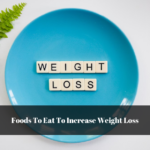Focus on Whole, Minimally Processed Foods
When trying to lose weight, emphasize whole, unprocessed foods in your diet. Choose plenty of fruits, vegetables, whole grains, beans, and legumes, lean proteins like fish, poultry, and plant-based proteins, and healthy fats like nuts, seeds, avocado, and olive oil.
Limit heavily processed foods, fast food, sugary foods and beverages, and refined grain products. Centering your diet around wholesome, nourishing foods supports weight loss.
Pay Attention to Portion Sizes
It’s important to be mindful of portion sizes even when choosing healthy foods. Overeating can easily lead to excess calorie intake. Pay attention to hunger and fullness signals, and stop eating when you feel satisfied but not stuffed.
Measuring out snacks rather than eating straight from a package can help keep portions in check. Using smaller plates can help as well. Moderating your portions, even of healthy foods, supports weight loss through managing calories.
Prioritize Protein
Getting adequate protein is key when losing weight. Protein helps increase satiety so you feel fuller longer between meals, allowing you to naturally reduce calories. Protein also helps preserve lean muscle mass when in a calorie deficit.
A general recommendation is to consume 0.5-1 grams of protein per pound of target body weight daily. Include high-protein foods like meats, fish, eggs, dairy, legumes, nuts, and seeds to meet your needs.
Reduce Overall Carb Intake
Limiting total carbohydrate intake can promote weight loss in some individuals. However, it’s important to still consume high fiber, less processed carb sources for optimal nutrition.
Emphasize vegetables, beans, fruit, and whole intact grains rather than refined flour products or sweets when you eat carbs. Avoiding added sugar is also beneficial for weight loss.
Stay Hydrated
Drinking plenty of calorie-free, non-caffeinated beverages is beneficial for weight loss efforts. Proper hydration supports metabolism and aids weight loss.
Aim for adequate total fluid intake primarily from water, herbal tea, seltzer, or black coffee/tea. Limit sugary beverages that add excess calories. Hydration supports your body’s natural cleansing processes as well.
Create a Reasonable Calorie Deficit
To drop excess body fat for weight loss over time, you must burn more calories than you consume. Cutting too many calories can backfire by lowering your metabolic rate though.
Aim to reduce your current calorie intake by about 500 calories daily to stimulate safe, sustainable weight loss over time without deprivation. This calorie deficit goal may need to be adjusted based on your individual needs and progress. Tracking intake with an app for a period can help gauge this.
The key principles are sticking with whole, minimally processed real foods, controlling portions, getting enough protein, reducing empty calories from refined carbs and added sugars, staying hydrated, and maintaining a moderate calorie deficit for steady weight loss over time.




